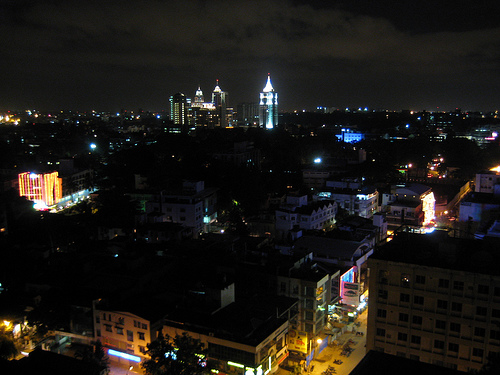


A quick scan of Wikipedia’s entry for the Indian city of Bangalore, and one finds a lot of similarities to Boston, Massachusetts. Both are capitals of their respective states and have long histories that intertwine with its people’s struggle for independence from the British empire. Some of the each country’s best-known colleges and research institutions provide both cities with stimulating environments for intellectual thought and artistic achievement. Technology-driven industries provide each city with strong economies and good quality of life for most of its citizens.
But despite Bangalore’s status as a burgeoning metropolis, the southeastern hub in the state of Karnataka still lags behind its western counterparts like Boston when it comes to accessible services for people with disabilities. In observation of the United Nation’s International Day of Persons with Disabilities, the city of Mumbai’s English language newspaper, Daily News & Analysis (DNA), published the article, “Making Bangalore Disability-Friendly,” on Monday. What the co-writers, Soumita Majumdar and Suparna Goswami Bhattacharya, discover is a city whose corporate denizens are ready and wiling to hire more people with disabilities, but municipal services aren’t yet accommodating enough for these individuals.
Partnerships with NGOs, educational institutions, and private businesses have fostered an openness to hiring people with disabilities. The reporters speak with a Business Processing Outsourcing (BPO) company, similar to contract services organizations here in the U.S., that employs 300 people. In addition to governmental goals to have 3% of the workforce comprised of these individuals, Volvo India is setting a goal to increase hiring of people with disabilities from 1% to 5% within the next few years.
Providing adequate career training for all these professions is an ongoing concern, according to a disability advocate named Sebi Chacko, who is quoted in the DNA article. But the bigger barriers lie within the workplaces themselves. Chacko says:
Offices should also have disabled-friendly infrastructure. For instance, ramps should be put up, there should be Braille-enabled lifts and strobe lighting for hearing-impaired people during emergencies. Even employees should be sensitised about these systems in place. Lack of awareness on a company’s part is a big challenge.
On the streets of Bangalore, meanwhile, there is no signage or accommodations for people with disabilities who want to use public transportation or visit public parks, libraries or museums. Even the police stations are not accessible, another official says.
Bangalore’s example makes clear that the UN’s theme for the 2012 International Day of Persons with Disabilities (“Removing barriers to create an inclusive and accessible society.”) is spot-on. It also underscores the impact that the Convention on the Rights for People with Disabilities can have in in third-world countries striving to make life matter more this underserved population.
Comments?
Image by Melanie M.